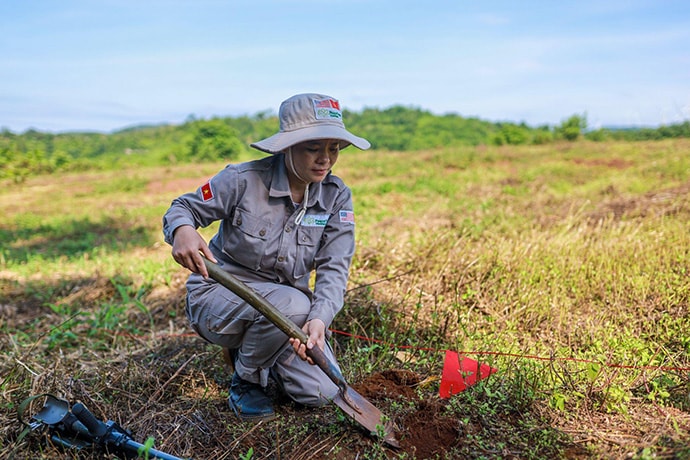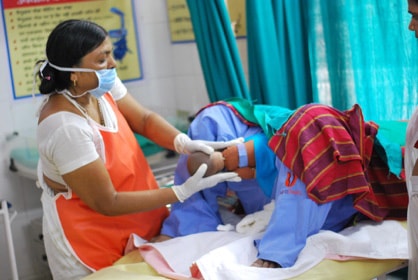Posted on April 5, 2022
By Meetra Alokozay, Executive Director, Sahar

Gawhar Khatoon High School, Mazar-e-Sharif. Photo: Sahar.
Education is pivotal in promoting gender equality, and Sahar is committed to preventing and combating gender discrimination by supporting girls’ and women’s education in Afghanistan. Education is a fundamental human right; however, it is well known that since the Taliban has taken over Afghanistan, education has once again been taken away from millions of Afghan girls. Currently, formal education is banned for girls above 6th grade in Afghanistan. As an organization expanding access to girls’ Education in Afghanistan for 20 years, we at Sahar are deeply saddened and enraged by the decision. We use strategies to redirect our rage and sadness towards strengthening our efforts of providing girls’ access to quality education.
Continue Reading
Posted on April 4, 2022
By Carlie Stowe, Project Manager, PeaceTrees Vietnam

PeaceTrees Explosive Ordnance Disposal (EOD) Technician, Phan Thị Ngọc, working to clear land of explosive ordnance in Quang Tri Province, Vietnam
Russia’s invasion of Ukraine and the indiscriminate use of deadly weapons of war, including cluster munitions and other explosive remnants of war (ERW), is showcasing, in real-time, the devastation that war brings to a country and the terrible reality of the use of explosive ordnance. Across the globe, ERW threaten people’s lives and livelihoods every day. In 2020, 7,073 casualties due to landmines and other ERW were recorded across 56 states (and other non-state territories). In addition to the physical threat they pose to people’s lives, the presence of explosive ordnance blocks access to critical resources like clean water and farmland, and hinders social and economic development opportunities, further perpetuating poverty rooted in the impact of war.
Continue Reading
Posted on March 25, 2022
By Heidi Breeze-Harris, Executive Director, PRONTO International

PRONTO International works to optimize the birthing experience for mothers, babies and their providers in limited resource settings. We do this by training simulation and team training educators that are able to provide low-cost, high-fidelity simulation education to even the most remote health facilities in LMICs.
Continue Reading


